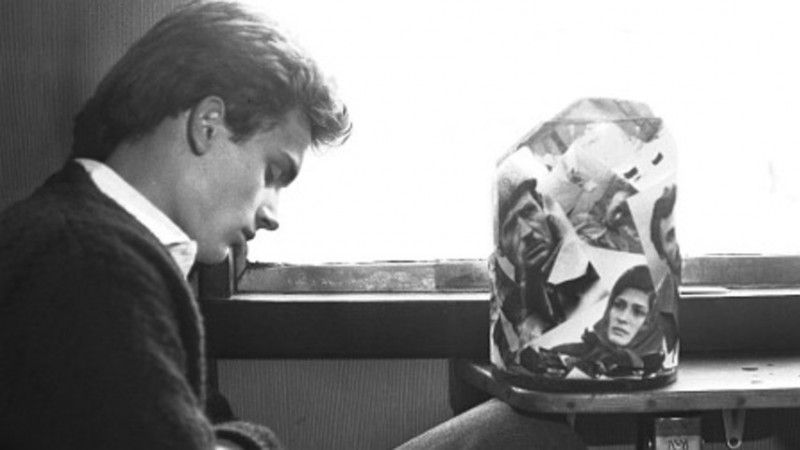Our way home – stories of a life-changing decade
Lecture by Andrea Pócsik
Zachęta's Facebook
free entry
Live stream on Zachęta’s Facebook page and Youtube channel.
In Hungarian film history there is a rich tradition of biographical movies named after Miklós Jancsó’s classics My Way Home (1965). I have chosen two of these for the accompanying screenings of the Cold Revolution exhibition. Both represent the hard dictatorship, the fifties but from different angles. The earlier one, Sándor Sára’s film (The Upthrown Stone, 1968) shows the life in the country, forcing farmers into kolkhozes, cooperatives. Márta Mészáros’s heroine in the Diary for my Children (1982) lives in the capital and sees the communist ideas turning into violence, building a dictatorship at close. In my presentation I will analyse the functioning of memories, their controversial position in the two films. I will also examine the role of movies (and movie theatres) of the given period in the life of the protagonists. The comparative analysis gives us the opportunity to highlight the revolt of a young woman (the alter ego of Mészáros) and a young man (the alter ego of Sára) against oppression. In the later case it gives us an insight how and why Romani people were represented in such narratives.
Andrea Pócsik (PhD) — Associate Professor in the Media Department of Pázmány Péter Catholic University, Budapest, Hungary. She is co-chair of Verzio Film Foundation, the organizer of Verzio International Human Rights Documentary Film Festival in Budapest. She has written one book Átkelések. A romaképkészítés (an)archeológiája, Gondolat Kiadó, Budapest 2017 (Passings. The (An)archaeology of Roma Image Making)–, and many articles, film and art reviews in Hungarian, in English and in German. She has been working as a film curator, program organizer, practicing engaged scholarship, cooperating with contemporary artists. She was involved as an academic expert in creating the new international archive of Romani people, the RomArchive. Recently she did research on Peter Forgacs’s works. Presently she is a Goethe Institute Fellow at documenta Archive, Kassel, Germany. Main research interests: media archaeology, (critical) film education methodology, critical cultural research, memory studies, archival research, documentary film.
The project is co-financed by the Governments of Czechia, Hungary, Poland and Slovakia through Visegrad Grants from International Visegrad Fund. The mission of the fund is to advance ideas for sustainable regional cooperation in Central Europe:

-
27.05 – 10.10.2021Cold RevolutionCentral and Eastern European Societies in Times of Socialist Realism, 1948–1959
The curators of the exhibition undertake a critical reflection on the changes taking place at that time, illustrating their scale and dynamics using visual material from the fields of painting, photography, film, design and architecture. It includes over 400 works from six countries of the former Eastern Bloc: Poland, Czechoslovakia, East Germany, Bulgaria, Romania and Hungary.
Zachęta – National Gallery of ArtZachęta


